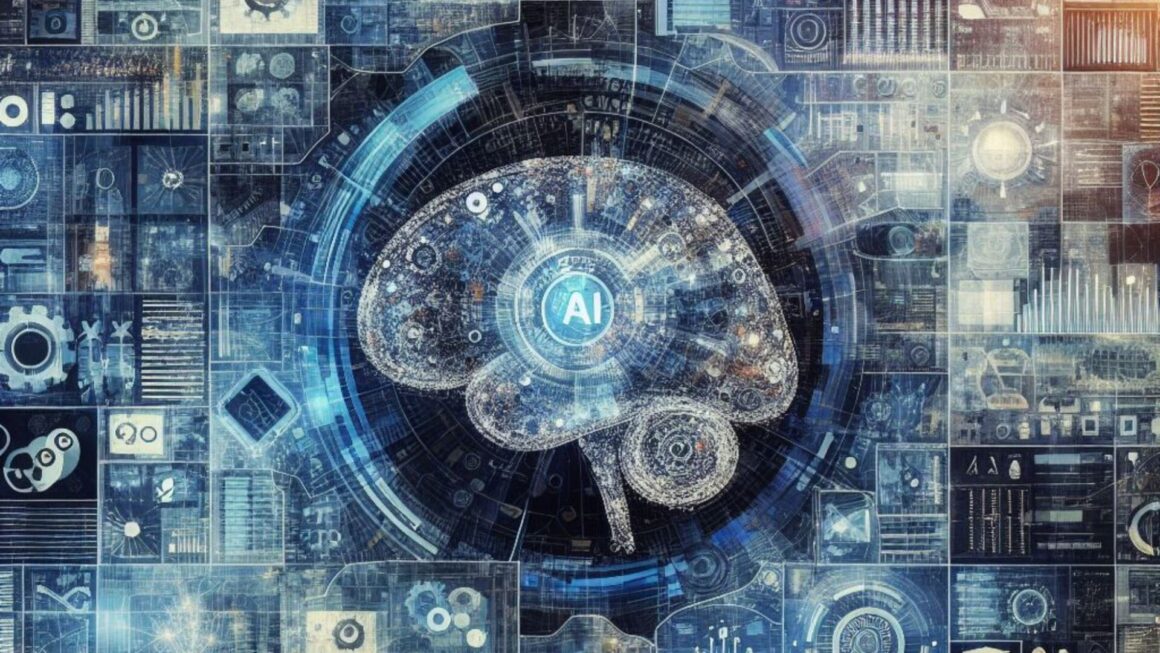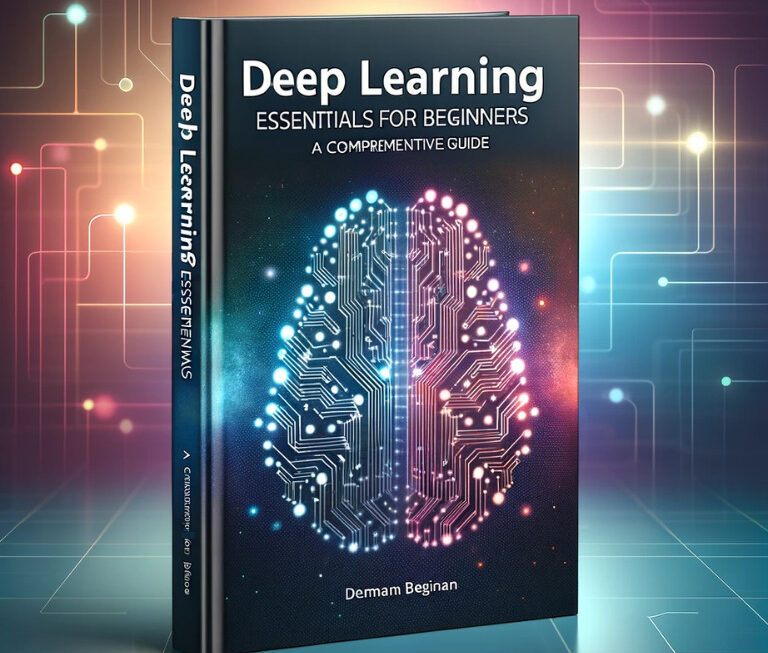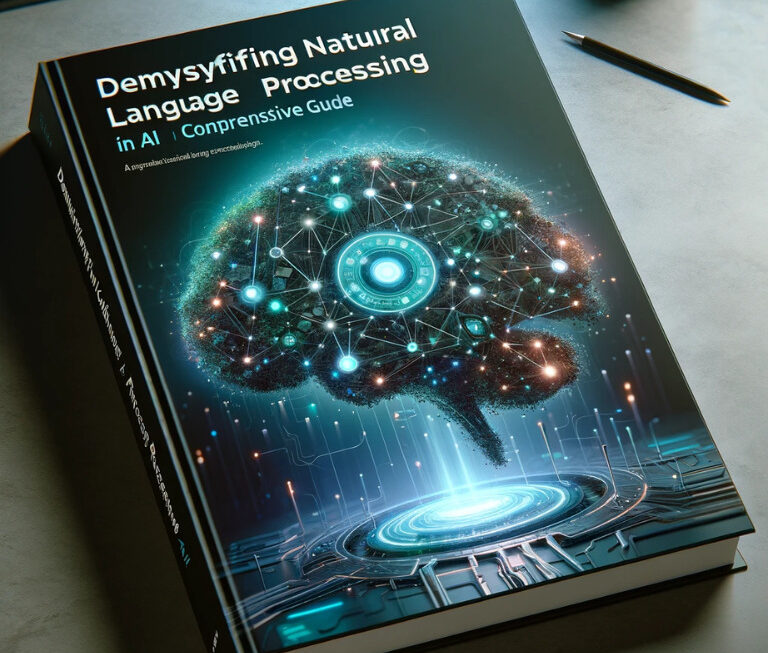In the rapidly evolving landscape of software development, the integration of artificial intelligence (AI) in code review processes is not just a luxury—it’s becoming a necessity. DeepCode, an AI-powered code review tool, stands at the forefront of this revolution, offering a new dimension of efficiency and accuracy in identifying bugs and vulnerabilities in code.
The Rise of AI in Code Review
AI’s foray into code review is a response to the increasing complexity of software development. Traditional code review methods, though effective, are often time-consuming and prone to human error. AI, with its capability to process vast amounts of data and learn from it, presents a solution that is both fast and reliable.
DeepCode, by harnessing the power of machine learning, represents a significant leap in this domain. It’s not merely a tool but a paradigm shift, offering a level of analysis that was previously unattainable with human review alone.
DeepCode: An Overview
DeepCode is a cloud-based service that uses machine learning algorithms to analyze codebases. It supports multiple programming languages such as Java, JavaScript, Python, TypeScript, and C/C++. The platform’s AI is trained on thousands of open-source projects, allowing it to understand the intent of the code and identify potential issues.
The primary strength of DeepCode lies in its ability to detect 10 times more critical bugs and security vulnerabilities compared to traditional tools. This is achieved by its advanced algorithm that goes beyond pattern matching; it understands the semantic meaning of the code, enabling it to spot issues that might go unnoticed during conventional reviews.
AI-Driven Code Analysis: How it Works
At its core, DeepCode functions by analyzing the syntactic and semantic aspects of code. This involves the following steps:
- Code Scanning: DeepCode scans the codebase and parses the code into an abstract representation.
- Machine Learning Analysis: The AI applies machine learning models, trained on vast repositories of open-source code, to this abstract representation.
- Issue Detection: The system identifies anomalies, patterns, and potential vulnerabilities that could lead to bugs or security issues.
- Feedback Generation: DeepCode provides actionable feedback, highlighting areas of concern and suggesting improvements.
This process is not just about finding errors; it’s about understanding the context of the code, making DeepCode more akin to a highly skilled reviewer who not only identifies problems but also understands the ‘why’ behind them.
The Benefit of DeepCode in Modern Software Development
The integration of DeepCode into the software development lifecycle brings several benefits:
- Enhanced Accuracy: AI-driven analysis reduces the likelihood of bugs and security vulnerabilities slipping through.
- Time Efficiency: It significantly speeds up the code review process, freeing developers to focus on more complex tasks.
- Continuous Learning: As DeepCode analyzes more code, its machine learning models become more accurate, continually enhancing its effectiveness.
How DeepCode Works: AI-Driven Code Analysis Explained
DeepCode marks a significant advancement in code review processes by leveraging AI to analyze codebases. This section delves into how DeepCode utilizes machine learning to enhance the accuracy and efficiency of code review, setting a new standard in bug detection and security analysis.
Machine Learning at the Heart of Code Analysis
DeepCode’s core strength lies in its machine learning algorithms, which are trained using thousands of open-source projects. This extensive training enables DeepCode to not just identify errors but also understand the intent behind code segments. The process involves several key steps:
- Data Collection and Training: DeepCode’s algorithms are fed with a myriad of code examples, allowing the system to learn from real-world scenarios and coding practices.
- Pattern Recognition and Learning: The AI learns to recognize patterns and anomalies that often lead to bugs or security flaws.
- Semantic Analysis: Unlike traditional tools that focus on syntax, DeepCode understands the semantics of code, enabling it to detect deeper and more subtle issues.
Identifying Security Flaws and Potential Bugs
One of DeepCode’s standout features is its ability to detect critical bugs and security vulnerabilities. It achieves this by:
- Advanced Bug Detection: The system identifies bugs that are often missed in traditional reviews. This includes complex bugs that stem from subtle logical errors or overlooked edge cases.
- Security Vulnerability Identification: DeepCode is adept at uncovering potential security threats, alerting developers to vulnerabilities that could be exploited.
Supported Languages and Frameworks
DeepCode supports a range of programming languages and frameworks, including Java, JavaScript, Python, TypeScript, and C/C++. This wide-ranging support ensures that it can be integrated into various development environments, making it a versatile tool for diverse software projects.
The Outcome: A More Reliable Code Review Process
By incorporating AI-driven analysis, DeepCode elevates the code review process to new heights. It provides developers with a powerful tool that not only spots errors but also helps them understand the underlying issues. This leads to more robust and secure code, ultimately resulting in higher-quality software products.
Integrating DeepCode into Development Workflows

Adopting DeepCode into the existing development process can greatly enhance the efficiency and security of software projects. The integration process is designed to be seamless and intuitive, allowing developers to benefit from AI-powered insights without disrupting their established workflows.
Easy Integration with Development Tools
DeepCode’s design prioritizes ease of integration with common development tools and platforms. It can be integrated into various stages of the software development lifecycle, especially during code review and version control processes. Key integration points include:
- Git Merge Requests: DeepCode can be configured to analyze code during merge requests. This allows for the detection and resolution of issues before they are merged into the main codebase.
- Continuous Integration/Continuous Deployment (CI/CD) Pipelines: Integrating DeepCode into CI/CD pipelines enables automated code review during the build and deployment stages, ensuring that code quality and security are maintained throughout the development cycle.
Streamlining Code Review with Automated Analysis
By automating the code review process, DeepCode significantly reduces the time and effort required for manual reviews. This automation does not replace human oversight but rather complements it by handling routine checks and flagging potential issues for further inspection. Key benefits include:
- Reduced Manual Review Overhead: Developers can focus on more complex and critical aspects of code review while DeepCode handles basic checks and routine error detection.
- Early Detection of Bugs and Vulnerabilities: By analyzing code as it is written and during merge requests, DeepCode helps catch issues early in the development process, reducing the likelihood of bugs making it to production.
Enhancing Developer Experience
DeepCode is designed to not only improve code quality but also enhance the overall developer experience. It provides clear and actionable feedback, helping developers understand and fix identified issues efficiently. This leads to a more streamlined development process and a learning experience for developers, as they gain insights into common pitfalls and best practices.
Customization and Configuration
DeepCode offers customization options to fit the specific needs and preferences of different development teams. Teams can configure the level of analysis and the types of issues they want DeepCode to focus on, making it a flexible tool that adapts to various project requirements.
The integration of DeepCode into the development workflow represents a significant enhancement in the way code is reviewed and maintained. Its ability to seamlessly blend with existing tools and processes makes it an invaluable asset for modern software development teams, driving improvements in code quality, security, and developer productivity.
Understanding and Acting on DeepCode’s Suggestions

DeepCode’s ability to provide meaningful and actionable suggestions is a cornerstone of its value in the software development process. When DeepCode analyzes a codebase, it doesn’t just identify potential issues; it also offers insights and recommendations on how to resolve them. This aspect of DeepCode aids developers in enhancing both the security and quality of their code.
Interpreting DeepCode’s Feedback
When DeepCode reviews code, it generates feedback that is both detailed and context-aware. This feedback typically includes:
- Identification of Issues: DeepCode pinpoints specific lines of code where potential bugs or security vulnerabilities exist.
- Explanation of Concerns: For each identified issue, DeepCode provides an explanation of why it might be problematic, offering insights into potential bugs or vulnerabilities.
- Suggested Fixes and Improvements: Perhaps most importantly, DeepCode suggests concrete steps to resolve identified issues. These suggestions are based on best practices and the extensive database of code patterns that DeepCode has learned from.
# Sample Ruby on Rails code snippet
class UsersController < ApplicationController
def create
@user = User.new(user_params)
if @user.save
# Successful user creation logic here
flash[:success] = 'User created successfully.'
redirect_to @user
else
# Handle validation errors
flash.now[:error] = 'Error creating user.'
render 'new'
end
end
private
def user_params
params.require(:user).permit(:name, :email, :password)
end
endThe code sample above represents a simplified Ruby on Rails controller action for creating a user. When DeepCode analyzes such code, it can provide specific feedback on potential issues, such as validation errors or security concerns.
Implementing Changes Based on AI-Generated Suggestions
The suggestions provided by DeepCode are designed to be straightforward and actionable, enabling developers to make informed decisions about their code. Implementing these suggestions typically involves:
- Reviewing the Suggested Changes: Developers need to review the suggestions to understand the proposed changes and their implications on the codebase.
- Testing and Validation: After making the suggested changes, it’s crucial to test the code to ensure that the modifications haven’t introduced new issues and that the intended functionality is preserved.
- Iterative Improvement: DeepCode’s feedback can also serve as a learning tool, helping developers improve their coding practices over time by understanding common patterns that lead to bugs or vulnerabilities.
The Edge Over Traditional Code Review Tools
DeepCode’s innovative approach to code review offers significant advantages over traditional code review tools. By leveraging AI and machine learning, DeepCode not only streamlines the review process but also enhances the accuracy and depth of analysis. This section explores how DeepCode sets a new benchmark in the realm of code review.
Enhanced Detection of Critical Bugs and Vulnerabilities
One of the most notable advantages of DeepCode is its superior ability to detect critical bugs and security vulnerabilities. Traditional tools often rely on predefined rules and patterns, which can miss complex or uncommon issues. DeepCode, in contrast, uses advanced machine learning algorithms that understand the semantics of code, allowing it to identify issues that are beyond the scope of conventional tools. This leads to:
- Greater Accuracy: DeepCode’s AI-driven approach enables it to identify a wider range of issues, including those that might be overlooked in traditional reviews.
- Deeper Insight into Code: By understanding the intent behind code, DeepCode can provide more meaningful feedback and suggestions for improvement.
Comparison with Traditional Methods
Comparing DeepCode with traditional code review methods highlights several key differences:
- Speed and Efficiency: DeepCode automates much of the review process, significantly reducing the time required for manual code analysis.
- Scalability: As codebases grow in size and complexity, traditional review methods can become cumbersome. DeepCode’s AI-driven analysis scales effectively, maintaining high levels of accuracy and efficiency regardless of the size of the project.
- Learning and Adaptation: Unlike static tools, DeepCode continuously learns from new code patterns and evolves over time, ensuring that its analysis remains relevant and effective.
Impact on Code Quality and Developer Productivity
The adoption of DeepCode has tangible benefits for both code quality and developer productivity:
- Improved Code Quality: By catching a broader range of issues and providing insightful suggestions, DeepCode helps in maintaining high standards of code quality.
- Increased Developer Productivity: With DeepCode handling routine checks and identifying potential issues early, developers can focus on more challenging and creative aspects of software development.
Real-World Impact of DeepCode

The real-world impact of DeepCode can be best understood through case studies that highlight its effectiveness in various software development environments. These case studies demonstrate how DeepCode has been instrumental in enhancing code quality, reducing bugs, and improving the overall development process for several organizations and projects.
Examples of DeepCode in Action
- Large-Scale Enterprise Applications: In one instance, a large enterprise with a complex codebase integrated DeepCode into their development process. The AI-powered tool was able to identify critical security vulnerabilities that had been missed during manual reviews. As a result, the company was able to address these issues proactively, significantly enhancing the security of their application.
- Open Source Projects: Several open-source projects have also benefited from DeepCode’s analysis. In these cases, DeepCode helped maintain high code quality standards, crucial for projects relying on community contributions. By catching bugs and vulnerabilities early, DeepCode ensured the stability and reliability of these open-source applications.
- Startups and Agile Teams: Startups and small agile teams have found DeepCode particularly useful for maintaining code quality without the overhead of extensive manual reviews. For these teams, DeepCode’s fast and efficient analysis has been crucial in keeping up with rapid development cycles while ensuring code integrity.
Measurable Improvements in Code Quality and Efficiency
The integration of DeepCode has led to measurable improvements in various key performance indicators:
- Reduction in Bug Count: Organizations have reported a significant reduction in the number of bugs and issues post-release, indicating improved code quality.
- Decreased Time to Market: By automating aspects of code review, DeepCode has helped teams accelerate their development cycles, enabling faster time to market for new features and products.
- Enhanced Security Posture: In the case of applications with stringent security requirements, DeepCode has played a pivotal role in identifying and mitigating potential security threats.
Learning and Evolving with DeepCode
Beyond immediate improvements in code quality and efficiency, DeepCode also offers long-term benefits. Teams using DeepCode regularly report an enhancement in their coding practices, as they learn from the feedback and suggestions provided by the tool. This ongoing learning process contributes to a culture of continuous improvement in software development practices.
Future of AI in Code Review and Development
The integration of AI in code review, exemplified by DeepCode, is a harbinger of the future of software development. This trend points toward an era where AI not only assists in identifying errors but also plays a crucial role in shaping development practices and enhancing code quality. The future of AI in code review and development is likely to be characterized by several key developments.
Evolving Capabilities of AI in Software Development
As AI technologies continue to advance, their capabilities in the realm of software development are expected to expand significantly. Future iterations of tools like DeepCode might offer:
- Predictive Analysis: AI could evolve to predict potential future issues based on coding patterns, helping developers proactively address problems before they arise.
- Personalized Feedback: AI systems might tailor their feedback and suggestions to individual coding styles and preferences, further enhancing the learning and development of software engineers.
- Enhanced Integration with Development Tools: AI’s integration with development tools is likely to become more seamless, offering a more unified and intuitive user experience.
The Role of Machine Learning and Big Data
The effectiveness of AI in code review hinges on machine learning and big data. As the volume of available code and the complexity of software projects continue to grow, these technologies will become even more critical. They will enable AI tools to learn from a broader array of code examples and adapt to new programming languages and paradigms more swiftly.
Impact on Software Development Processes
The future impact of AI on software development processes is likely to be profound:
- Shift in Developer Roles: Developers may spend less time on routine debugging and more on creative aspects of software development, as AI handles more of the mundane aspects of code review.
- Faster Development Cycles: With AI providing rapid feedback and suggestions, development cycles could become shorter, enabling quicker iterations and faster product evolution.
- Higher Code Quality Standards: As AI tools become more sophisticated, the overall standard of code quality is expected to rise, leading to more reliable and robust software products.
Ethical and Practical Considerations
As AI takes on a more prominent role in software development, ethical and practical considerations will become increasingly important. Issues such as bias in AI algorithms, the importance of human oversight, and the potential for job displacement will need to be addressed thoughtfully.
Conclusion
The rise of DeepCode in modern software development signifies a significant shift in how code review and bug detection are conducted. With its AI-driven analysis, DeepCode is at the forefront of reshaping the software engineering landscape. Its impact goes beyond mere efficiency gains, ushering in a new era of software quality assurance and developer productivity.
DeepCode offers transformative benefits, including enhanced code quality by detecting subtle bugs and security vulnerabilities, increased efficiency through automated code review, and a continuous learning process for developers. This adoption of AI tools like DeepCode reflects a broader trend in the industry, emphasizing proactive bug detection, enhanced security practices, and the empowerment of developers. As software development teams explore the possibilities of AI, DeepCode stands as a powerful tool paving the way for more innovative, efficient, and secure software development practices.




